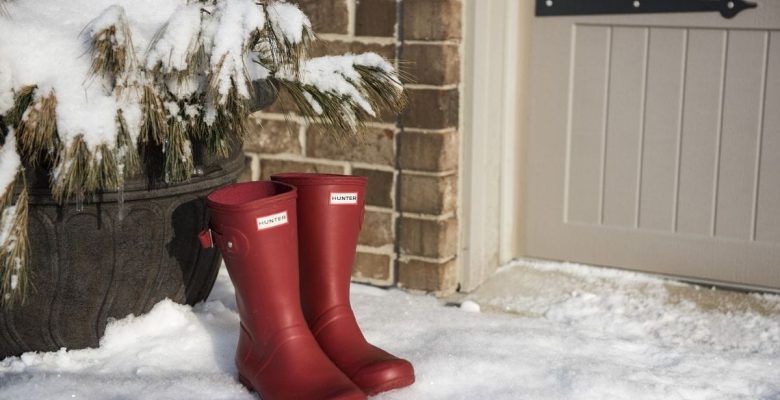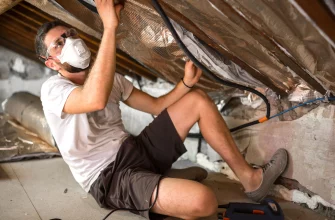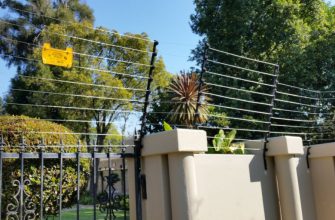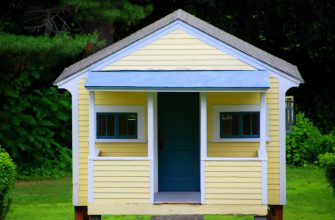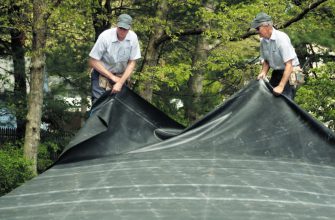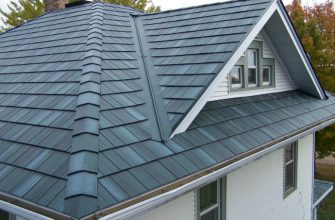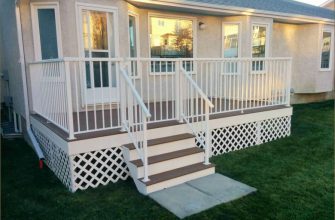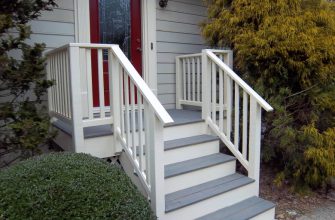Winterizing a mobile home is an essential annual task to protect your home from damage caused by freezing temperatures. Properly winterizing involves preparing both the exterior and interior of your mobile home, as well as the water system, to prevent pipes from bursting, the roof from collapsing under heavy snow, and other cold weather hazards.
In this comprehensive guide, we will walk through all the key steps for winterizing your mobile home. From inspecting windows and doors to draining pipes, we’ve got you covered on exactly what you need to do. Following these mobile home winterization tips and tricks will save you time, money, and headaches when old man winter comes knocking.
- Importance of Winterizing Your Mobile Home
- Benefits of Proper Winterization
- Prevent Pipe Bursts & Water Damage
- Avoid Roof Collapse from Heavy Snow
- Save Money through Energy Efficiency
- Exterior Preparation
- Inspecting and Sealing Windows and Doors
- Checking and Repairing Roof and Siding
- Skirting and Underbelly Insulation
- Interior Preparation
- HVAC System Maintenance and Inspection
- Pipe Insulation and Heat Tape Installation
- Ensuring Adequate Ventilation
- Water System Winterization
- Draining and Shutting Off Water Supply
- Antifreeze Treatment for Plumbing Fixtures
- Protecting Water Heater and Water Pump
- Energy Efficiency Measures
- Sealing Air Leaks and Adding Insulation
- Installing Storm Windows and Doors
- Using Energy-Efficient Curtains or Window Treatments
- Safety Considerations
- Carbon Monoxide and Smoke Detectors Check
- Fire Extinguisher Inspection and Placement
- Emergency Kit Preparation
- Outdoor Area Winterization
- Patio and Deck Maintenance
- Tree and Shrub Pruning
- Carport or Garage Preparation
- Conclusion
- Final Thoughts on Mobile Home Winterization
- Importance of Regular Maintenance and Inspection
Importance of Winterizing Your Mobile Home
There are a few key reasons why properly winterizing your mobile home is so important:
- Prevent pipe bursts – Exposed pipes can freeze and burst in frigid temperatures, causing major water damage.
- Avoid roof collapse – Heavy snow accumulation puts extra pressure on the roof. Proper winterization helps it withstand the load.
- Save energy and money – Sealing air leaks and adding insulation makes your home more energy efficient during cold weather.
- Protect appliances and fixtures – Things like your water heater and toilet/sink fixtures can crack if water inside them freezes and expands.
Additionally, a well-winterized mobile home will keep you warmer and more comfortable during the winter months. Taking the time to winterize can prevent very costly repairs down the road.
Benefits of Proper Winterization
Let’s take a closer look at some of the major benefits you’ll enjoy with a properly winterized mobile home:
Prevent Pipe Bursts & Water Damage
One of the biggest risks that comes with frigid winter temps is pipes freezing and bursting. Pipes in unheated areas under your mobile home are particularly vulnerable. When they burst, water can gush out, warp floors, cause mold growth, and lead to very costly repairs.
Properly winterizing pipes with insulation and heat tape prevents them from freezing in the first place. Likewise, draining water lines removes standing water that could freeze and expand.
Avoid Roof Collapse from Heavy Snow
Mobile home roofs are more vulnerable to collapse than traditional site-built homes. Preparing the roof by checking for and sealing any leaks helps strengthen it before winter.
Likewise, clearing snow off the roof regularly prevents overloading. Proper winterization leads to a reinforced roof that can better handle heavy snowfall.
Save Money through Energy Efficiency
Sealing all air leaks and adding extra insulation during winterization makes your home much more energy efficient. This keeps warm air inside so your heater doesn’t have to work as hard during cold snaps.
Greater efficiency means you’ll save money on utilities. It also keeps the interior warmer so you stay comfortable even when it’s frigid outside.
Exterior Preparation
Properly preparing your mobile home’s exterior for winter is a key step that protects critical structure elements like the roof, walls, windows and doors from damage:
Inspecting and Sealing Windows and Doors
Windows and doors that leak cold air will cost you more in heating bills. Carefully inspect seals around each window and door. Look for gaps, cracks, or tears and re-caulk as needed.
Weatherstripping and door sweeps will also seal leaks around exterior doors. Make any necessary repairs before winter hits.
Checking and Repairing Roof and Siding
Inspect roofing material and seals around any vents or skylights. Repair any damaged areas like missing shingles that could lead to leaks. Clear branches or debris from the roof as well.
Check exterior siding and trim for gaps or cracks too. Seal any openings with caulk to keep cold air out and prevent critters or pests from getting in.
Skirting and Underbelly Insulation
Enclosing the open space beneath your mobile home with skirting blocks cold drafts from blowing underneath. Well-secured skirting literally seals this gap around your home’s exterior.
For even better insulation, add rigid foam boards or fiberglass batt insulation underneath too. This insulates vulnerable pipes and ductwork beneath the home.
Interior Preparation
It’s not just the exterior that needs special attention – the inside of your mobile home needs to be prepped for winter as well. Key steps include:
HVAC System Maintenance and Inspection
Have a technician inspect your furnace to ensure it’s in good working order before winter temperature drops. Replace filters and clear debris that could impact airflow or efficiency.
For heat pumps, trim back any plant growth that’s obstructing outdoor units. Cover them as needed to prevent snow/ice buildup which can block air exchange.
Pipe Insulation and Heat Tape Installation
Exposed water pipes, like those under sinks or behind washing machines, are vulnerable to freezing. Insulate them with pipe sleeves or wrapping to help regulate temperature.
For pipes most prone to freezing, electric heat tape provides extra protection. When wrapped around pipes, heat tape warms them to above freezing.
Ensuring Adequate Ventilation
Proper ventilation prevents moisture buildup inside your home during winter months. Check bathroom exhaust fans, range hoods over stoves, and clothes dryer vents to ensure good airflow.
Likewise, regularly air out the home by opening windows to let stale air escape. Just be sure to close them back up tightly to retain heat.
Water System Winterization
Preparing your mobile home’s plumbing system for winter is imperative to prevent catastrophic pipe bursts and flooding damage:
Draining and Shutting Off Water Supply
To start, locate and shut off the main water supply valve. This is typically near your pressure tank or water pump.
Next, open all faucets inside and outside your home. As water drains out, open valves at the lowest points in your plumbing system to drain remaining water from pipes.
Antifreeze Treatment for Plumbing Fixtures
Once water lines are drained, pour RV antifreeze into sinks, tubs, showers, and toilets. This protects the P-traps and toilet tanks/bowls from freezing and cracking.
Running antifreeze through fixtures also leaves a protective coating inside pipes. Just be sure to use RV antifreeze, which is non-toxic.
Protecting Water Heater and Water Pump
Drain your water heater completely, then close the valve
Drain your water heater completely, then close the valve to prevent more water from entering. Shut off power to electric water heaters or turn off the gas valve on gas models.
For homes with well water, drain jet pumps by removing the check valve. Consider wrapping insulation around the pump housing for added freeze protection.
Energy Efficiency Measures
Boosting your mobile home’s energy efficiency is one of the smartest ways to prepare for frigid temps. Key steps to put in place include:
Sealing Air Leaks and Adding Insulation
Caulk and seal any cracks, gaps, or openings throughout the interior and exterior that allow cold air in. Pay special attention around windows, doors, pipes, wiring holes, and vents.
Adding extra insulation in walls, ceilings and floors also greatly improves efficiency. Aim for an insulation R-value of at least R-13 in walls and R-30 in ceilings.
Installing Storm Windows and Doors
Storm windows create an extra barrier over existing windows that improves insulation. Storm doors provide the same benefit for exterior doors while allowing ventilation.
These secondary glazing systems boost R-values and reduce drafts. DIY magnetic or shrink film kits are affordable options.
Using Energy-Efficient Curtains or Window Treatments
Heavy curtains, thermal blinds and window film improve insulation around glass windows and sliding glass doors. This provides an easier DIY efficiency upgrade.
Blackout curtains also help reduce heat loss through windows at night. Close them when it gets dark out for noticeable energy savings.
Safety Considerations
Preparing for winter also means checking some key safety systems to protect your mobile home and family:
Carbon Monoxide and Smoke Detectors Check
Ensure carbon monoxide and smoke detectors are properly working with fresh batteries. Change batteries if needed and test all units.
Place carbon monoxide detectors near sleeping areas and furnace/water heater closets. Position smoke detectors on each level and in every bedroom.
Fire Extinguisher Inspection and Placement
Check charge levels on fire extinguishers around your home. Recharge any low units so they’re ready if needed. Position larger ABC extinguishers in the kitchen, garage and near the furnace.
Make sure you can quickly access an extinguisher from any area. Hang them on brackets instead of setting on the floor for visibility.
Emergency Kit Preparation
Prepare an emergency supply kit in case winter storms or power outages hit. Useful items include flashlights, batteries, non-perishable food/water, warm blankets, backup phone chargers and a first aid kit.
Keep everything together in an easy to access waterproof container. Having essential supplies on-hand brings peace of mind.
Outdoor Area Winterization
Don’t neglect exterior spaces when prepping your mobile home for the elements. Steps for properly winterizing outdoor areas include:
Patio and Deck Maintenance
Inspect the structure and surface of outdoor patios or decks adjoining your home. Look for any loose boards, nails or splintered areas and make repairs before snow and ice take a toll.
Clear patio furniture, grills, planters and other items off decks/patios to prevent damage. Store what you can in a garage, shed or covered area.
Tree and Shrub Pruning
Trim back tree limbs and branches that overhang the roof or siding. Remove any dead or damaged limbs. This prevents breakage under heavy, wet snow which could damage structures.
Prune shrubs near the home’s exterior as well so heavy snow doesn’t flatten plants or damage foundations.
Carport or Garage Preparation
Clear out any clutter or items that typically get stored under carports or in garages. Organize and secure all hazardous chemicals, automotive fluids, tools, etc. so they won’t tip or spill if containers shift under snow loads.
Inspect the carport/garage structure itself for any needed reinforcement. Look for signs of wear like sagging beams, cracks or holes and repair any issues. This prepares the structure to bear weight of snow piled on the roof.
Conclusion
Final Thoughts on Mobile Home Winterization
Preparing a mobile home for harsh winter conditions takes time and diligence. But doing it thoroughly is well worth the effort to avoid frozen pipes, roof collapse, water damage and other cold weather impacts.
Following this comprehensive winterization guide will help identify the weak spots and vulnerabilities in your particular mobile home. It also provides tips to address each area so your home stays safe this winter.
Importance of Regular Maintenance and Inspection
While this annual winterization process is crucial, so is year-round maintenance and repair. Address any issues with your roof, windows, exterior surfaces, etc. as soon as you notice them. This prevents small problems from becoming bigger headaches down the road.
Likewise, periodically checking and servicing elements like your HVAC system, smoke detectors, insulation levels and other winterization checklist items is wise. Staying diligent with regular upkeep makes your next seasonal preparation that much smoother.

